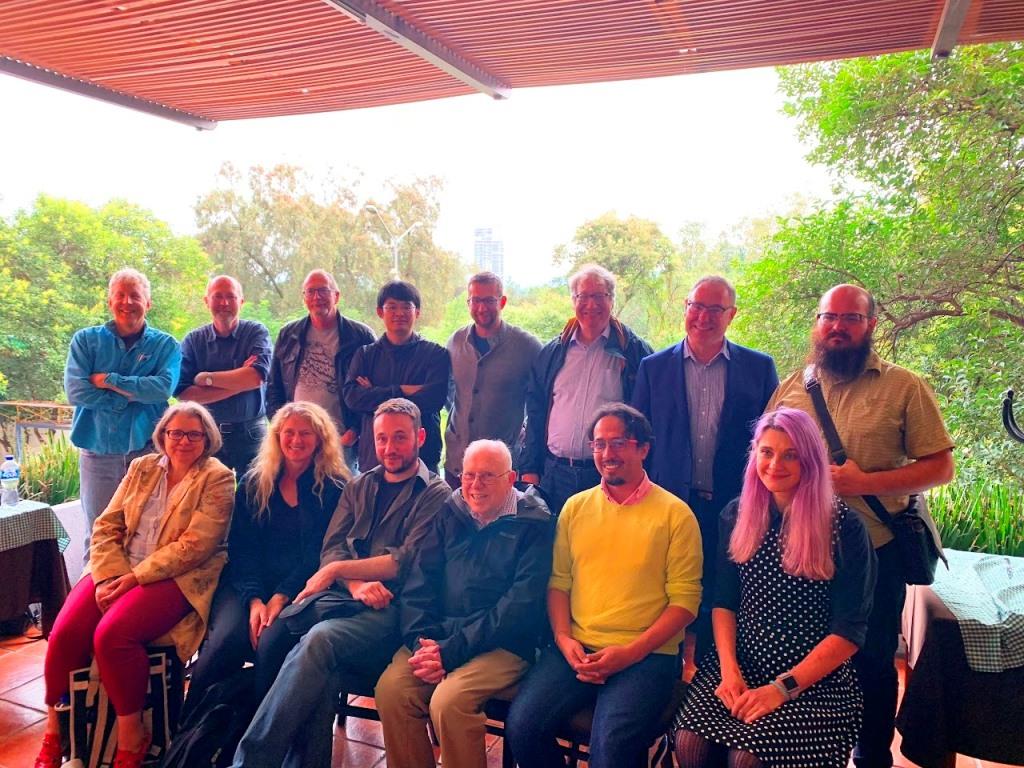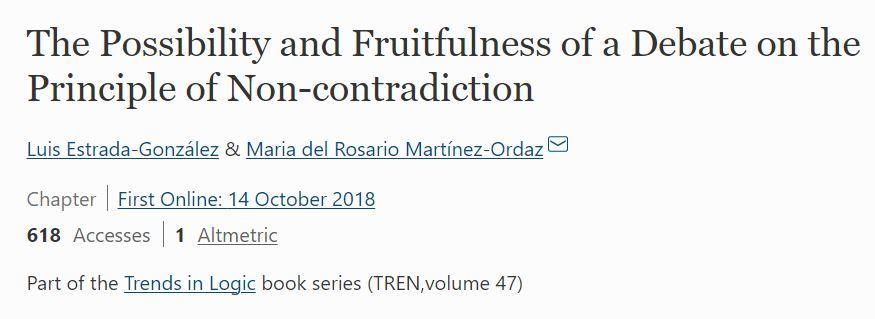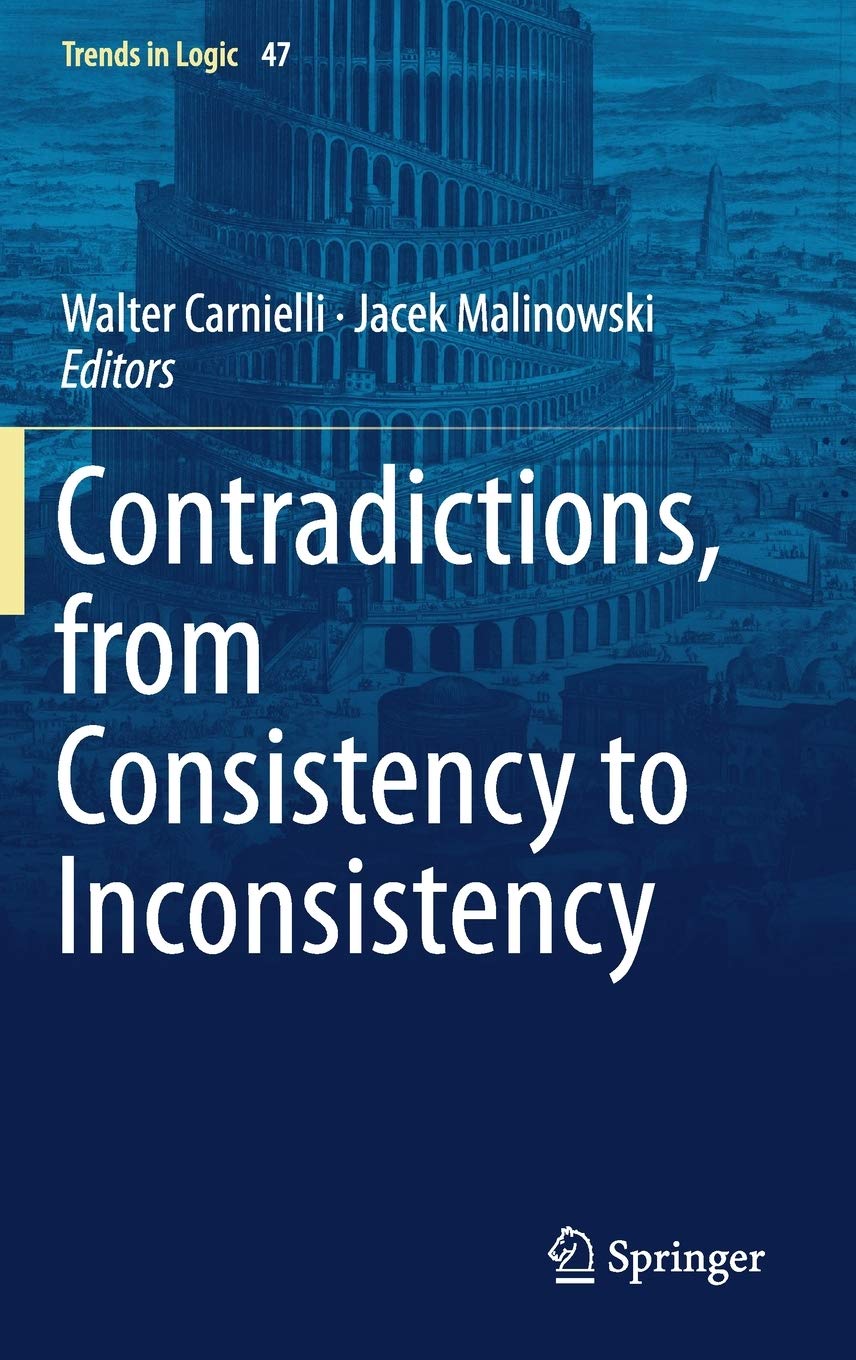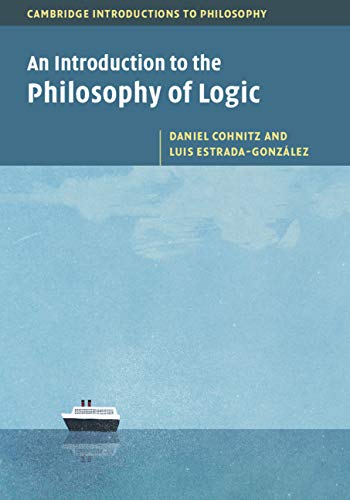|
 Luis with a good bunch of members of the Logician’Liberation League in 2019
Luis with a good bunch of members of the Logician’Liberation League in 2019
What one cannot pretend is that this can be done by a single person. Zach Weber has been doing an amazing job in continuing Sylvan’s ultramodal agenda, but it is difficult to find people who can take the whole project seriously. Again, I have been very lucky. With Fernando Cano-Jorge we have recently taken seriously Sylvan’s idea that going ultramodal could affect our understanding of some limitative results in physics. And Sylvan was right: going ultramodal blocks the reasoning behind the infamous inequality at the core of Bell’s theorem. Perhaps results like this one could help in convincing more people to give Sylvan’s project a chance.
The second turning point was the workshop on connexive logic organized by Heinrich Wansing and Hitoshi Omori in UNILOG 2015. It renewed my interest in connexive logics, which I had approached once from a very reck, paracomplete perspective. Many of the logics they develop are not merely paraconsistent but outrightly inconsistent, that is, they are logics with inconsistent theorems. That fascinated me because it meant to me that a new portion of the logical landscape was there to be explored. Connexive logics, and contra-classical logics in general, quickly lead to inconsistency even with weak logical assumptions, so the interplay with paraconsistency is almost unavoidable there. Most of my time nowadays is devoted to think about inconsistency, other forms of contra-classicality, their interactions and the consequences of all that for our conception of logic. I have a bunch of wonderful students —Elisángela Ramírez-Cámara, Christian Romero-Rodríguez, Sandra D. Cuenca, Miguel Ángel Trejo-Huerta— working on those topics and they are doing really well. In addition, I co-supervise with Marek Nasieniewski the dissertation of Ricardo Nicolás-Francisco, who wants to apply the discussive approach to some inconsistent logics, including some belonging to the connexive brand.
3) How do you see the evolution of paraconsistent logic? What are the future challenges?
As I have said, I do not consider paraconsistent logic a mere temporal tool to be used whilst the conditions to finally use BFR are given. Like any (family of) logic(s), paraconsistent logic suggests its own pictures of logicality, rationality, science, our very lives and the overall surrounding world. I do not know whether those pictures are true, but I do not want to delactose them to prevent offending the good logical souls, I prefer exploring them just at face value.
In answering the first question, I said that understanding that a contradiction does not entail any other proposition was merely the tip of the iceberg. Heinrich Wansing and his collaborators are making a really strong case for inconsistent logics. But we should be ready to give the next step too and learn to live with logics where something is both valid and invalid and other theories at the “meta” levels. The coexistence of several brands of paraconsistency, especially those that tolerate contradictions but prefer to avoid them in the long run and those whose embrace them even at the meta-theoretical level, will be a worth seeing scenario. I am sure that we will discuss these topics during the next World Congress of Paraconsistency to be held in 2024 in Oaxaca, Mexico!
I enjoy logic; I think that it is full of fun and that one can have a wonderful time thinking about it. Nevertheless, the main challenge right now, and not only for paraconsistent logic, is to face the fact that doing logic, like most —if not all— our activities, is both an ethical and a political act. The way I do logic tries to reflect not only that I like it a lot, but also my deep conviction that things, in the most diverse spheres, can be different, actually better, and that we should fight for the difference and the better with all the resources at our hands, and the chance of teaching logic to the youth is one of the most powerful resources. Doing logic in the way I do it tries to reflect my deepest conviction that there are many ways of thinking, reasoning and being in the world, that everything is (logically) possible. Contrary to what the Vienneses said, and no matter how much one tries to escape, the slopes of logic are neither icy nor detached from the duty of doing better in this world of us.
|



